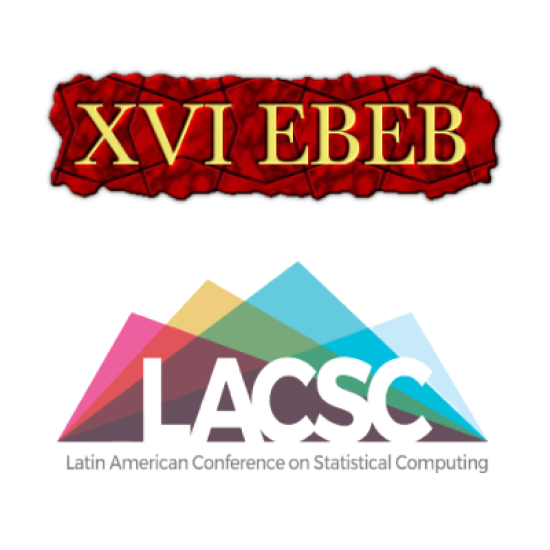Schools - March 14 to March 15 of 2022
The Schools will be offered in online format, from March 14 to March 15 of 2022 in the two days preceding the joint event: 16th Brazilian Meeting of Bayesian Statistics (EBEB 2022) and 6th Latin American Conference on Statistical Computing (LACSC 2022).
LACSC 2022 School: “Deep neural networks: Fundamentals, computational, mathematical aspects, and advances”
Deep neural networks (DNN) have boomed as a must-have technique in almost all machine-learning applications. After nearly a decade of evolution, many deep-based methods have been proposed considering more than only earlier convolutional operations in the hidden layers of an artificial neural network. The goal of this tutorial is not only to present the fundamentals of the computational and mathematical aspects of DNNs, considering from the very first proposed network of this kind - the Lenet-5 and its main components but also the more advanced architectures such as the Transformer networks that do not use convolution operations to do the job. All the technical aspects studied will rely on the digital image domain to exemplify and explain the fundamentals of the DNNs.
Instructor: Prof. Luciano Rebouças de Oliveira (Federal University of Bahia, Brazil)

Luciano Rebouças holds a Ph.D. in Electrical and Computer Engineering, from the Institute of Systems and Robotics University of Coimbra, a master's degree in Mechatronics, and a bachelor’s in computer science at the Federal University of Bahia (UFBA). He is an Associate Professor at the Dept. of Computer Science, at Institute of Computing, UFBA, and head of the Intelligent Vision Research Lab. He is a specialist in the field of Computer Vision and Machine Learning, his research is focused mainly on robotics, smart cities, biometric systems, and biomedicine.
EBEB 2022 School: “Bayesian Survival Analysis with BUGS”
Survival analysis is one of the most important fields of statistics in medicine and biological sciences. Furthermore, the computational advances in the last decades have favored the use of Bayesian methods in this context, providing a flexible and powerful alternative to the traditional frequentist approach. The goal of this tutorial is to summarize some of the most popular Bayesian survival models, such as accelerated failure time, proportional hazards, competing risks, and joint models of longitudinal and survival data. Moreover, an implementation of each presented model is provided using a BUGS syntax that can be run with JAGS from the R programming language.
Instructor: Prof. Danilo Alvares (Pontifical Catholic University of Chile)

Danilo Alvares holds a post-doctorate in Biostatistics from Harvard School of Public Health, USA (2018), a doctorate in Statistics, a master's degree in Biostatistics from the Universitat de València, Spain (2017 and 2015), a master's degree in Computer Science and Computational Mathematics and a degree in Applied Mathematics and Scientific Computing by the University of São Paulo, Brazil (2013 and 2011). His research is focused on: Bayesian survival analysis for health policy research and education, joint models for longitudinal and time-to-event data, Bayesian approaches to computational methods, longitudinal models, statistical modeling, statistical methods in epidemiology, biostatistical analysis, methods for the analysis of observational data, and machine learning.

